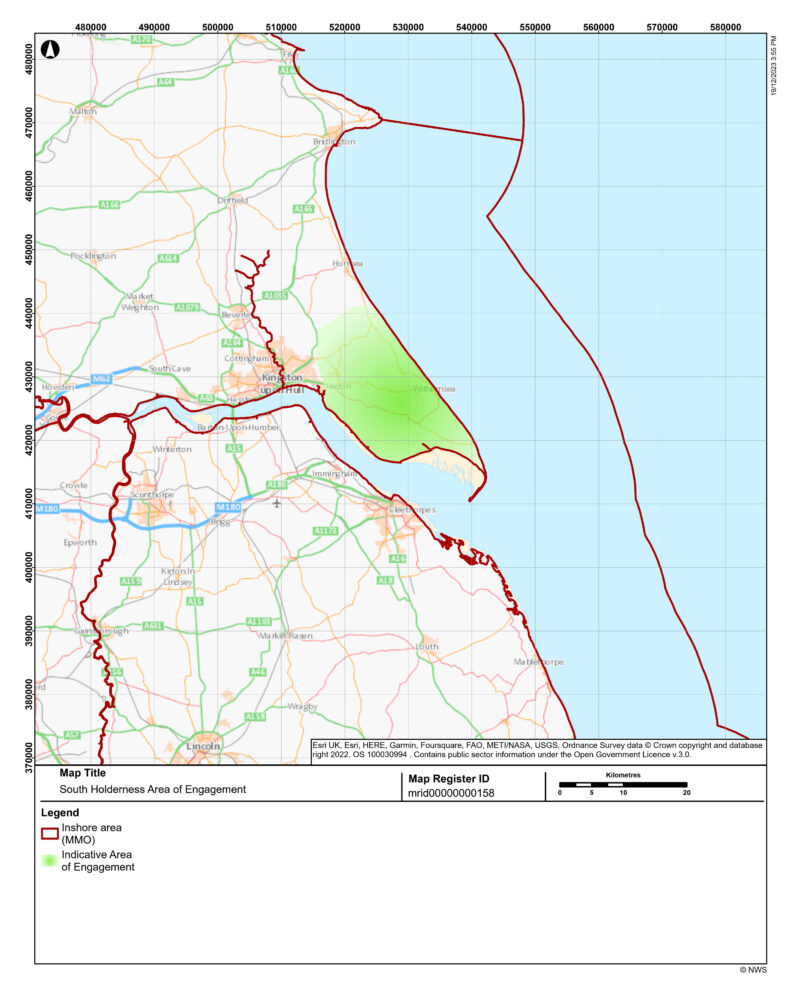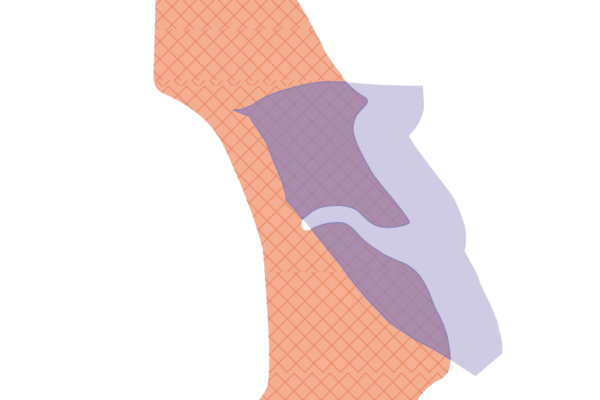Finding a site for a Geological Disposal Facility (GDF) will be the first community consent-based process to be undertaken in the UK for a project of this size, in a process that could take many years. A nationwide search has started to find a suitable site and a willing community to host a GDF for the UK’s higher activity radioactive waste.
Nuclear Waste Services, the GDF developer, is already working in partnership with local communities in England to gather and share information about geological disposal and find a suitable site for a GDF.
The three current Community Partnerships are South Copeland and Mid Copeland in Cumbria, and Theddlethorpe in Lincolnshire. In 2023, NWS made the decision not to take Allerdale, in Cumbria, further in the siting process.
Please note: the area is no longer being considered.
Using insight from readily available geological information and awareness of existing economic priorities in the region, the Working Group has decided to focus its engagement in the southern parts of Holderness indicated on the map.

Site investigations, design and planning will take place over many years to determine a suitable site that will be safe in the long term.
Construction will only start when a suitable site is identified, a Potential Host Community has confirmed its willingness to host the facility through a Test of Public Support (see ‘did you know…’ section), safety for people and the environment has been assured by the Office for Nuclear Regulation and the Environment Agency, and all the necessary consents and permits have been obtained. This decision could take 10-15 years. It is assumed that a GDF could be available to receive the first waste in the 2050s. Filling a GDF with waste and then closing it, once full, will run into the next century.
The area under consideration is discussed in the ‘Eastern England – subregion 2’ section of the National Geological Screening for a GDF.
You can find more information on GOV.UK.

The GDF developer, Nuclear Waste Services (NWS),is a subsidiary of the Nuclear Decommissioning Authority and the ‘one stop shop’ for the management of the UK’s radioactive waste. It includes leading experts in nuclear technology, chemists, physicists, geologists and engineers. As a public sector organisation, NWS does not profit from building a Geological Disposal Facility (GDF), its focus is on finding the right location and the right community for the facility.
Nuclear is part of the UK’s future low carbon energy strategy and NWS is supporting that by making the country’s nuclear waste permanently safe, sooner.
A Potential Host Community is the community that could potentially host a GDF. It will be identified over time from within a Search Area. The Potential Host Community will be defined using district, or unitary council electoral ward boundaries, depending on the administrative arrangements in place in the area. The Government’s view is that only residents in the area that will be directly impacted by the development should have a final say in whether they wish to host a GDF.
The final part of the siting process is several years down the line and will involve a Test of Public Support. A GDF can only go ahead following a positive Test of Public Support from the residents of the ‘Potential Host Community’.
It will be the people living in the Potential Host Community, through a Test of Public Support, that will decide whether they want to continue with the process for siting a GDF in the area.
A GDF will only be built at a suitable site and within a community willing to host it.
NWS has identified six Siting Factors that will be considered throughout the siting process as search areas and sites are assessed and evaluated. They are:
Safety and security – if NWS cannot demonstrate that a site will be safe and secure during its construction and operation, the GDF will not be built. The geology must be suitable to support the Safety Case after it’s been closed, and the facility must satisfy the UK’s strict safety and security standards.
Community – through consultation and research, NWS will ensure that the social and economic impact of the GDF will benefit the community.
Environment – delivery of a GDF will represent one of the largest environmental protection projects in the UK. To successfully deliver a GDF, NWS will need to assess the impact on the natural and historic environment, protected habitats and species.
Engineering feasibility – the geology of an area will significantly influence whether and how a GDF can be designed, constructed and operated safely during its operation and closure. NWS will assess whether the design, construction and operation of a GDF at a specific location is feasible.
Transport – to build a GDF, NWS will need to be able to transport waste and construction materials safely and securely.
Value for money – financial implications will shape where a GDF will be built including if it represents good value for money for the taxpayer over the long term.